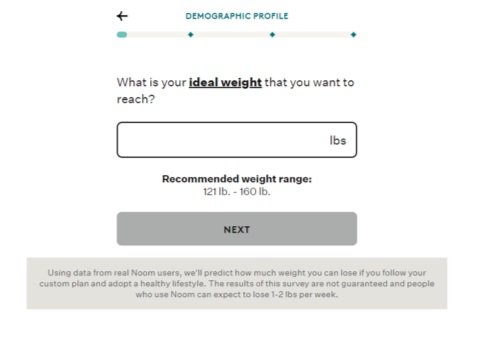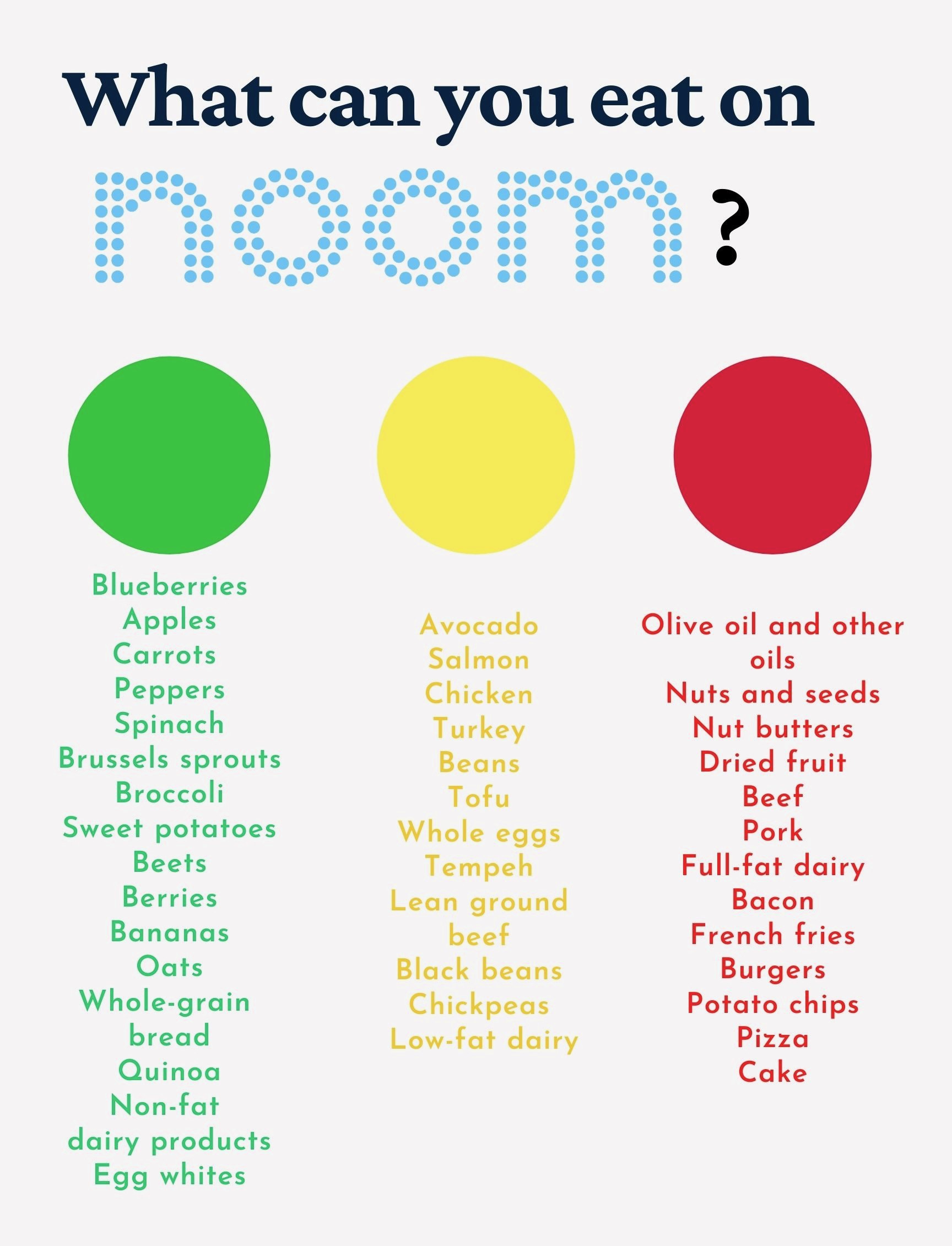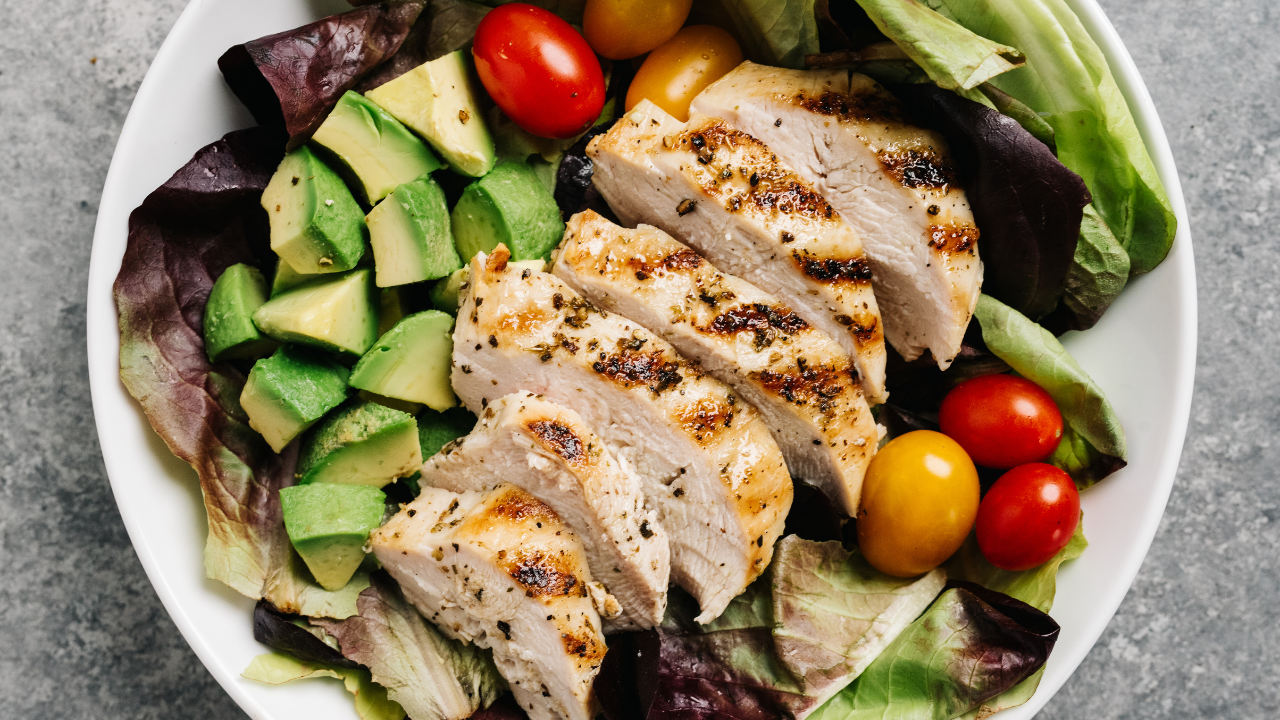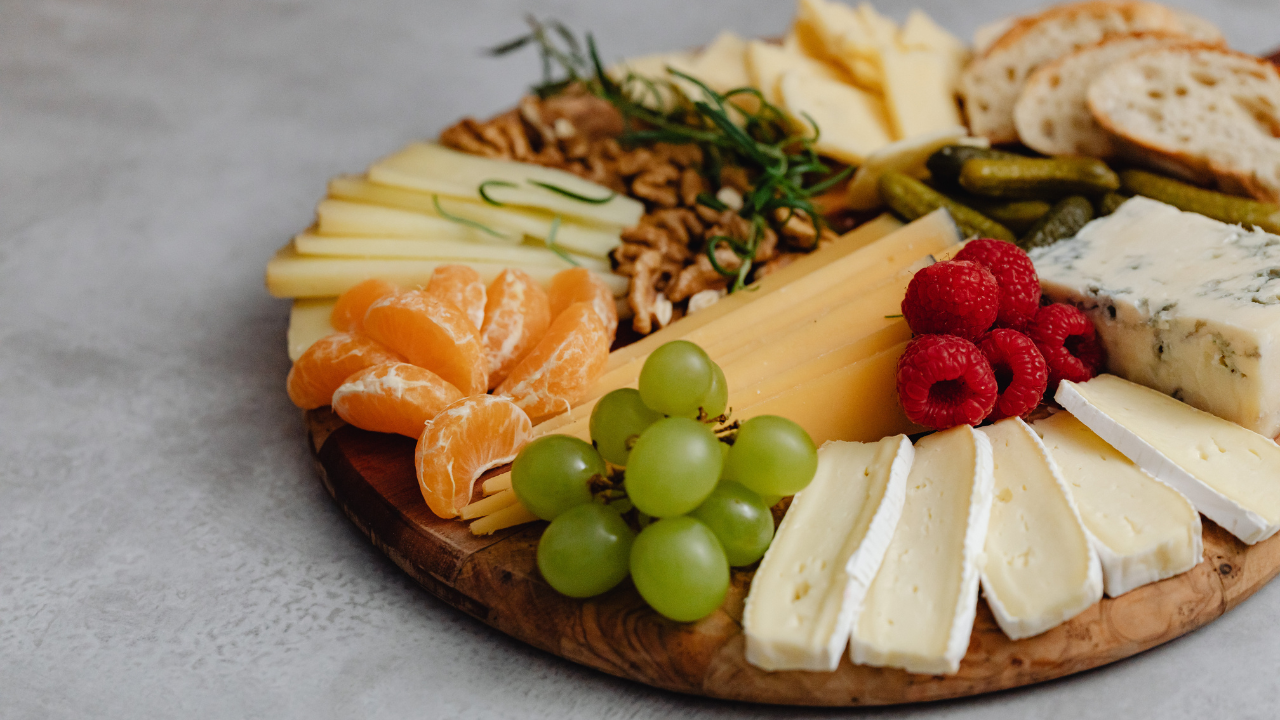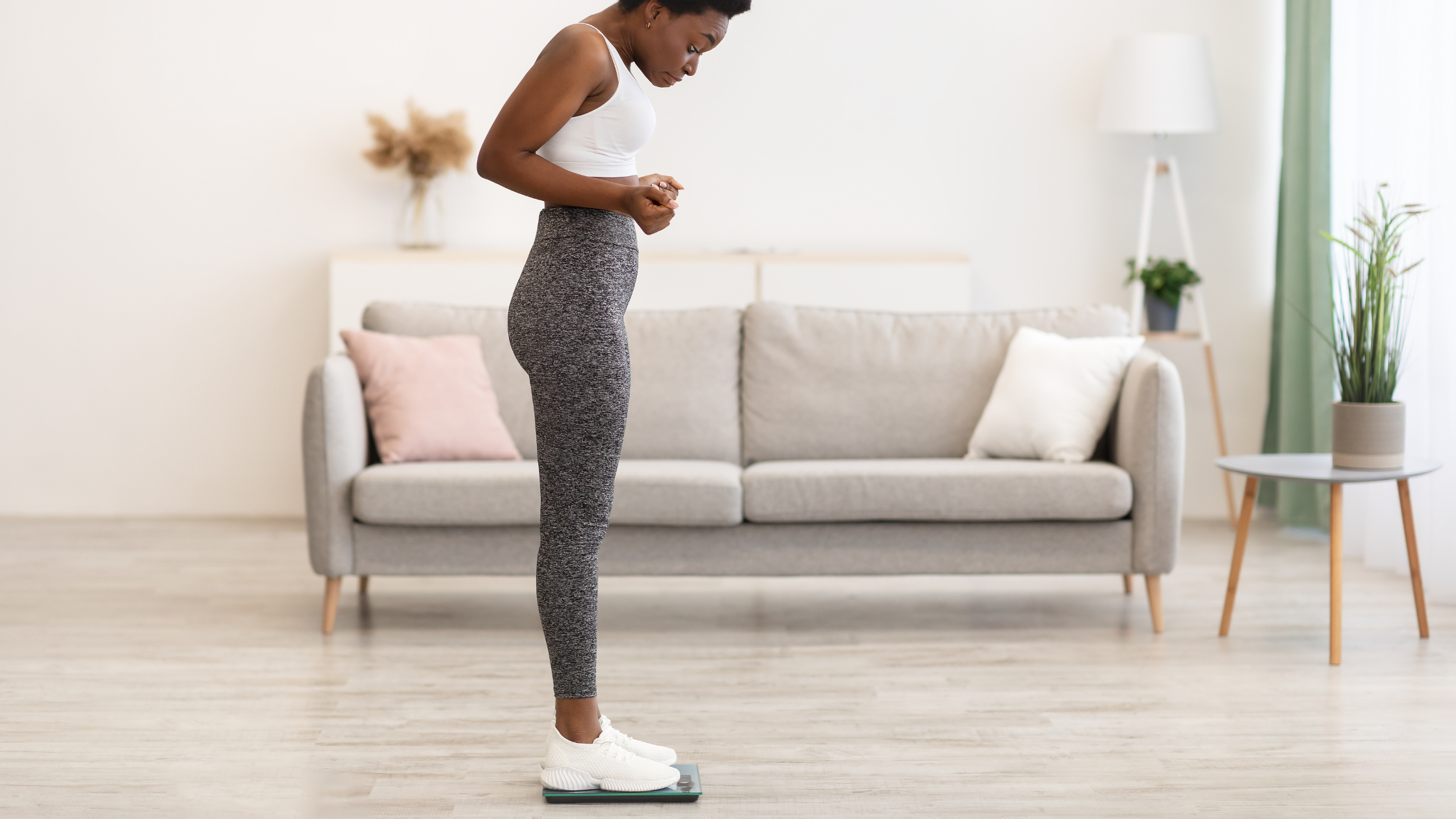Dietitian Reviews Noom: Is Noom Really “Anti-Diet”?
Noom is an increasingly popular eating plan and you’ve likely seen ads for it on Google, social media, even on streaming services. Noom claims to be the “last weight loss program you will ever need” and they even call themselves “anti-diet”. But is this actually true? Or is Noom just like every other diet plan out there.
If you’re new here, hello and welcome! My name is Hannah and I am a non-diet dietitian here to help you improve your relationship with your food and finally find food freedom.
What is Noom?
Noom is a program that is claimed to help with weight loss without dieting so you receive life-long results.
My experience with Noom
I decided to try signing up for Noom to get into the trenches for this review.
Setting a goal weight
Noom first had me set a goal weight. They stated that based on my height, age, and gender, I should have a goal weight of 121-160 lbs. I am unsure how they calculate their recommended body weights, but I have not weighed 121 lbs since 4th grade.
Ideal bodyweight and BMI are not individualized tools and you can absolutely be a very healthy person outside of a “healthy” BMI. But I decided to put in a (very unrealistic for me) goal weight of 125 pounds just to see what Noom would suggest.
The questionnaire
After choosing a goal weight, Noom then proceeds to ask a series of questions, including if you have diabetes or other chronic diseases, how many meals you eat per day, if you cook at home, etc. Noom did not ask any questions regarding disordered eating or eating disorders. This was a red flag. If you have a history of disordered eating or eating disorders, using an app that promotes some disordered eating behaviors (that I’ll describe more below) is not recommended.
Edit (2023)- I have received many comments and DMs letting me know that Noom does now ask about disordered eating history.
Once I completed the questionnaire, Noom provided me a weight loss plan to meeting my (made-up) goal of 125 pounds by May 7th. To give you more information, I competed the questionnaire on November 7 and I probably weighed around 170 pounds at the time. So this would mean that I would lose 45 pounds in 6 months, or around 1-2 pounds per week.
Now, a loss of 1-2 pounds per week may be a realistic goal for some people and it is better than those “lose 30 pounds in a month” programs. However, 125 pounds is not a realistic goal weight for my individual body. I have maintained my current weight for the last 5 years or so since I stopped dieting and adopted intuitive eating and I feel healthier than ever. This weight maintenance and foundation of healthy habits instead of drastic weight fluctuations is a sign that I am within my set point weight range.
I personally do not recommend setting weight goals because we do not know what our set point weight is supposed to be. Only our body knows what it is happiest at. And as I have already mentioned, a “healthy” BMI is not always an person’s healthy weight. There is no way that everyone that is 5’7” is supposed to weigh the exact same.
After providing me with my weight loss timeline, Noom then proceeds to lead you to a sign-up page to pay for your calorie goal, a coach, and all of the other bells and whistles that come along with being a paying member.
I believe that Noom used to have an extended free-version, but I was prompted to pay a minimum of $0.50 for a trial. Maybe I misunderstood how the trial works, but because I am very frugal and don’t want to put money into diet culture, I decided to end my personal Noom journey here.
The problems with Noom
Although I was unable to use the app for free, I have researched what actually happens once you are a paying user (and I have had many clients tell me about it) and here is what I have learned that leads me to conclude that Noom is indeed a diet.
You are given a calorie budget and encouraged to track everything
Based on your weight loss goal and how you answered the questionnaire, Noom provides a calorie goal that you are instructed to stick to. Most users are given a calorie goal around 1200 calories. Now, right off the bat, this is a LOW calorie goal for most people, even for weight loss. Eating too few calories can lead to binge eating, slowed metabolism, hair loss, decreased muscle mass, etc. Even if your goal is weight loss, it is still important to eat enough calories so that the weight loss can be sustainable.
Now, there some people find calorie counting to be helpful for them. If that’s you, then I am glad you have found a tool that works for you. However, for many people, tracking calories can be a slippery slope into disordered eating behaviors. If you find that you cannot go a day or even a meal without meticulously tracking, it may be time to self-reflect on what that is doing to your relationship with food and body.
Tracking calories diminishes foods to a number value, even though food is so much more than that. Food is composed of many different nutrients that serves your body in many ways. Plus, food is more than just nourishment. We need to eat food that both satisfies our physical and mental health. I also have a review of macro tracking here.
You can also damage trust with your body by counting and tracking every bite of food that you eat. If you are “out of calories” for the day but you still feel hungry, you are left to either ignore those hunger cues and what your body is telling you OR eat something and then feel guilty for consuming more than what you thought you were “allowed” to eat.
The traffic light approach
Along with a calorie goal, Noom also uses a traffic light approach to classify food choices.
These classifications are based on caloric density, so foods that have a have a low amount of calories for a large portion are deemed “green” and foods that have a larger amount of calories for a small portion are deemed “red” and yellow is somewhere in between.
While Noom does say that they don’t classify foods as “good” or “bad” and the colors are meant to help with portion control, think about how eating too many scary red foods would make you feel. Most people are inherently trying to do the right thing and so eating too many yellow or red foods may cause you to feel like you have done something wrong. It is human nature for us to think “red=stop=bad” and “green=go=good”.
This labeling system is unfortunate because there are many nutritious foods in the red group such as nuts and olive oil that will likely be eliminated or only eaten sparingly by most Noom users. High calorie does not equal unhealthy.
Source: Discover Magazine
Daily weigh-ins
Noom encourages its users to track their body weight daily. There are many issues that I see with this that I discuss further in this post. Weighing yourself daily may do more harm than good.
Our weight naturally fluctuates from day to day, as there are many different factors that play a role on the number on the scale. For many people, daily food choices, mental health, and motivation are all impacted by the number they saw on the scale that day and again, this leads to mistrust with our body as we are basing our choices on an arbitrary number that we only have so much control over.
Insinuates earning food through exercise
Along with tracking your food and your weight, Noom also tracks your exercise. This is a function seen in many similar apps such as MyFitnessPal and often times these apps will adjust your calories based on the exercise that you input or that it tracks on its own through step tracking on your phone or smart watch.
There are a few issues with this function. First, it insinuates that you need to earn food with exercise. You don’t. You never have to earn your food. You deserve to eat whether you hit the gym or not.
The calories calculated from exercise within these apps are an estimation, at best. It is impossible for them to calculate exactly how many calories you truly burned during that workout/throughout the day.
Bottom line - is Noom a diet?
Yes, Noom is a diet. Although it does focus on the psychology of eating along with behavior changes, it still can instill fear around certain foods and the calorie budgets are often too low for most of its users.
If you are looking to ditch the diets and learn how to eat without rules, we’d love to support you inside The Nutrition Reboot Membership.
Have you tried Noom? Leave a comment below with your thoughts and experience!
Learn more
Featured podcast episode
Want more help on your intuitive eating journey?
Join my membership to become part of a community of ex-dieters working towards food freedom and making peace with food so they no longer need to cut out their favorite foods.


